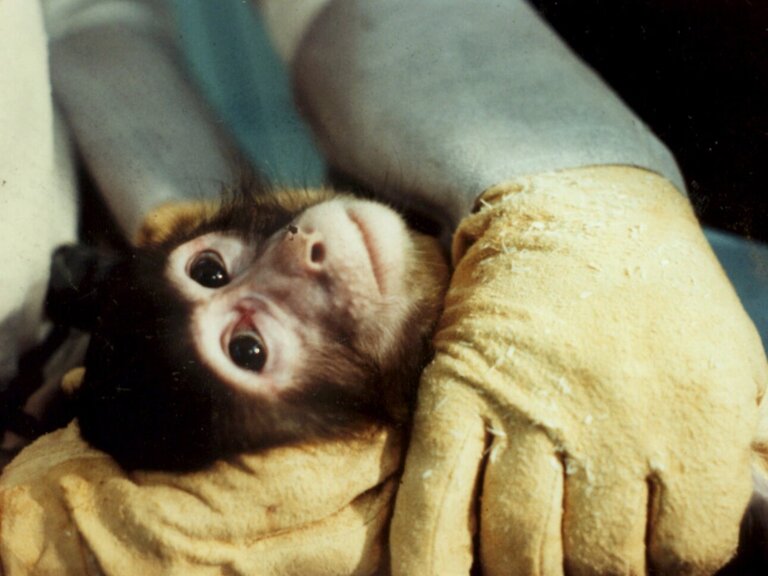The German Animal Welfare Federation and the Bremen Animal Welfare Federation welcome the recent decision by the Bremen Senate to discontinue monkey experiments at the university there. The department of the responsible Senator for Health, Women and Consumer Protection, Claudia Bernhard, rejected a continuation of the severely stressful brain experiments on macaques by Prof. Andreas Kreiter. The German Animal Welfare Federation and the Bremen Animal Welfare Federation have been campaigning against the experiments of the neurobiologist, who has been conducting research in Bremen since 1998, since the beginning. There have been numerous protests and actions time and again - most recently a demonstration in September, which was organized by the Bremen Animal Welfare Federation and other organizations and supported by the German Animal Welfare Federation.
"We are very pleased and relieved that the Senator has shown a clear stance and put a stop to the painful monkey experiments in Bremen," commented Brigitte Wohner-Mäurer, Chairwoman of the Bremen Animal Welfare Federation. "We very much hope that the cruelty inflicted on monkeys - our closest relatives - in Bremen in the name of research will finally come to an end and that the judiciary will not buckle in the event of an appeal." Thomas Schröder, President of the German Animal Welfare Federation, added: "The end of monkey experiments is long overdue. The decision of the senatorial authority is exemplary and important - also for how animal experiments must be assessed nationwide, especially if a possible gain in knowledge is not foreseeable." It is time to put research on a humane, modern path. "This reorientation must be urgently supported by the Bremen Senate, the research societies and the federal government with the necessary financial resources," demands Schröder.
SEVERELY STRESSFUL BRAIN EXPERIMENTS ARE ETHICALLY UNACCEPTABLE
According to its own statement, the senatorial authority came to the conclusion after a comprehensive examination of Kreiter's application for his experimental projects and the commissioning of various experts "that the stress placed on the experimental animals cannot be justified by the intended gain in knowledge and that the experimental project is therefore ethically unacceptable." Even in the context of basic research, an expected gain in knowledge in the near future is necessary to justify animal experiments. The clinical applicability of the intended gain in knowledge is uncertain. The severe suffering inflicted on the monkeys could also possibly distort the results.
DECADES OF LEGAL DISPUTE
It remains to be seen whether the animal experiments in the Hanseatic city will actually come to an end. The experiments have been accompanied by protests and a decades-long legal dispute since the beginning, in which the German Animal Welfare Federation was also significantly involved. The Bremen health authorities have already rejected the requested experiments several times, while the Senate has repeatedly spoken out in favor of an end. Kreiter fought his way through the courts and obtained approval from the Federal Administrative Court in 2014. "It would be desirable if the University of Bremen would finally accept the will of the population and the decision of the politicians," comments Wohner-Mäurer.
BACKGROUND: MONKEY EXPERIMENTS AT THE UNIVERSITY OF BREMEN
For the monkey experiments, the macaques' skulls are opened and a retaining pin is cemented into the skull bone. The head is screwed to this so that the monkeys cannot move it. Measuring electrodes, which are surgically inserted into the brain, register the animals' brain waves while they sit in narrow Plexiglas boxes and have to solve tasks on a computer screen. The animals not only have to endure the pain caused by the procedures: to force them to cooperate, they are also made to thirst and are only given drops of liquid if they solve their tasks correctly. During the experiments, the monkeys spend up to six hours a day restrained in the box. The animals only take part in the experiments for as long as they are thirsty. The monkeys have to endure these monotonous tasks day after day for years. Afterwards, the animals are killed and their brains are examined.







